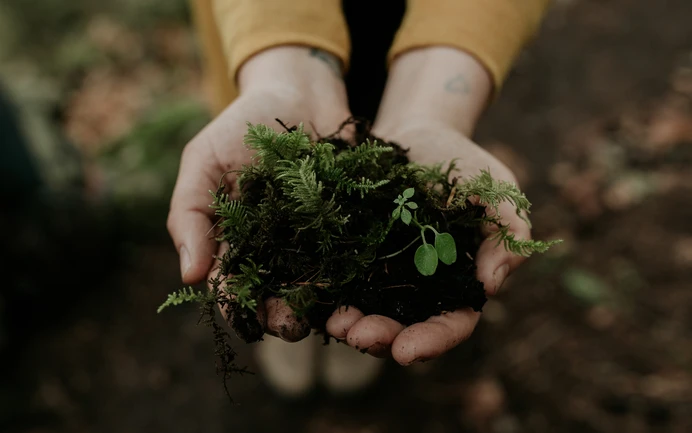
Sustainable Funerals: Alternatives To Embalming
By: Tom Harries
Mar 01, 2022 | Green Funeral Practice
4 min readEmbalming refers to treatments that preserve a human body after death. This is a very common practice in the US, however in recent years awareness has grown about the environmental harm caused by embalming chemicals.
A body does not have to be embalmed after death. There are a number of funeral practices that don’t involve the embalming process at all. There are also green embalming alternatives that leave the most harmful chemicals out of the embalming process.
This article looks at what is involved in the embalming process, embalming pros and cons, the environmental impact, and some of the embalming alternatives that are available.
What Is The Embalming Process?
Embalming is the treatment of human remains with the goal of preservation. Over time a body will decompose and the embalming process seeks to slow this decomposition. The process often also aims to keep the body’s features as they were presented during life.
The most common purpose of the treatment is to keep the body in a condition that is appropriate for private and funeral viewing. Bodies will also be embalmed when there is a significant journey between the places of death and disposition. Additionally, bodies that are donated for medical research are usually embalmed, while placement in cemeteries also might require embalming, especially in a crypt.
The embalming process is surgical and usually takes a few hours. The exact method will depend on the embalmer and the individual case. The process will generally involve the removal of certain bodily fluids including blood, the injection of embalming fluid into the arterial network and some surface treatment. An embalmer will often also be involved in cosmetic preparations, such as grooming and dressing.
Is Embalming Eco-Friendly?
Embalming fluid is made up of a mixture of harmful chemicals. One of these chemicals is formaldehyde, which is highly toxic and a known carcinogen.
There is growing concern about the soil pollution caused by the burial of an embalmed body. Each year more than four million gallons of embalming fluid are estimated to be buried in the US. Of particular concern is the formaldehyde content of these fluids and its potential impact on soil health.
Healthy soil is important for a healthy ecosystem. Soil filters water, provides nutrients to plants and captures carbon. Soil pollution is therefore an important environmental issue to address.

These environmental concerns have led to the development of green embalming alternatives, including processes using formaldehyde-free chemical mixes.
Can A Body Be Buried Or Cremated Without Embalming?
Yes, a body can be buried or cremated without embalming. The embalming process is not practiced in various cultures, and is also far less common outside North America.
Embalming is not necessary for direct cremation nor immediate burials. These processes occur in the days immediately following death and do not incorporate a funeral service. Embalming is not always necessary for traditional funerals either, with conventional burial and cremation often taking place within a week of death. Modern storage methods, such as refrigeration, have further limited the need for the practice.
In very limited circumstances embalming is a legal requirement in the US. For example, in some states it is a legal requirement for a body to be embalmed if it crosses state lines. Some states also require the embalming process if burial or cremation doesn’t happen within a certain time period.
How To Opt Out Of Embalming In End-Of-Life Planning
Embalming does not need to be part of your end-of-life plans. However, there are a few things to bear in mind if you would like to avoid the process.
You will first need to check that there is no legal requirement for embalming. Laws vary by state, but some states require the embalming process if the funeral is to take place beyond a certain time. It is therefore important to check that your intended service does not risk bringing any such requirement into play.

You should also consider what your preferred choice of disposition means for preservation. Certain dispositions do not require any form of preservation and therefore make opting out very simple. These include direct cremation, immediate burial and soil transformation — also known as natural organic reduction or human composting.
More traditional services may result in a timeline that requires some form of preservation. Where this is a possibility, it is worth checking whether an embalming alternative such as refrigeration is possible. Certain funeral homes have their own requirements that a body be embalmed if it is to be made available for private viewing. You should check with your chosen funeral home whether this is the case.
Natural Alternatives To Embalming
There are three types of natural alternatives to the traditional embalming process. The first is to follow a very similar embalming process, but to use a mix of chemicals that does not include formaldehyde. Green alternatives can preserve a body for several weeks without the use of the most toxic chemicals.
The second alternative is to opt for a different method of temporary preservation entirely. The most common of these is refrigeration. Where preservation is needed for transportation, other methods are available such as those using dry ice.
The third alternative is to choose a disposition method that does not require embalming. One increasingly popular choice is soil transformation. This sustainable alternative to cremation and conventional burial involves the gentle transformation of a body into nutrient-rich soil. Given environmental concerns are a common complaint about the embalming process, soil transformation is a fitting alternative as the process is eco-friendly and the output actively contributes to conservation efforts.
Read more about environmentally-friendly funerals in our resources section and get an instant online quote for Earth's soil transformation services.
Get a quote in seconds.







